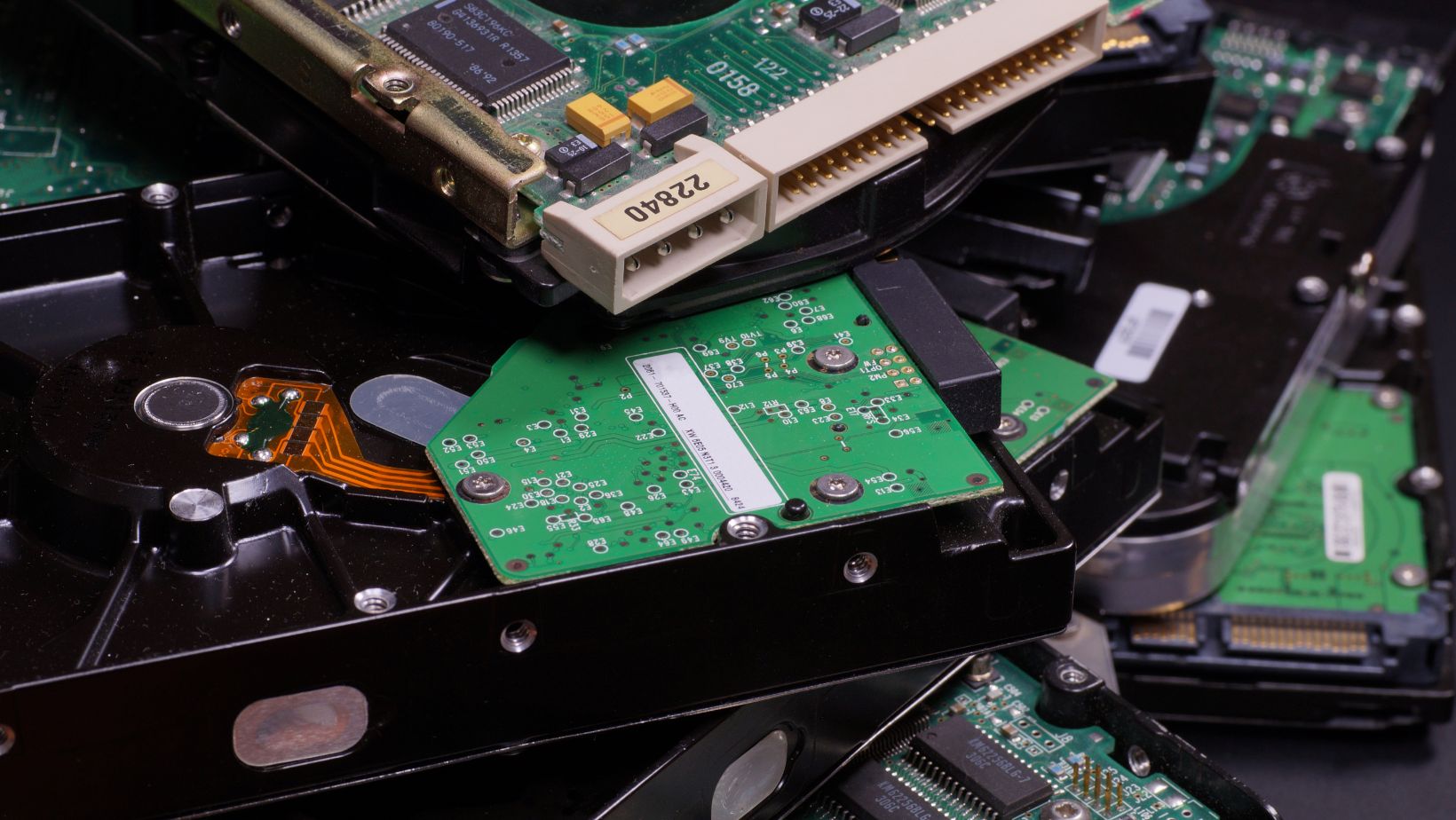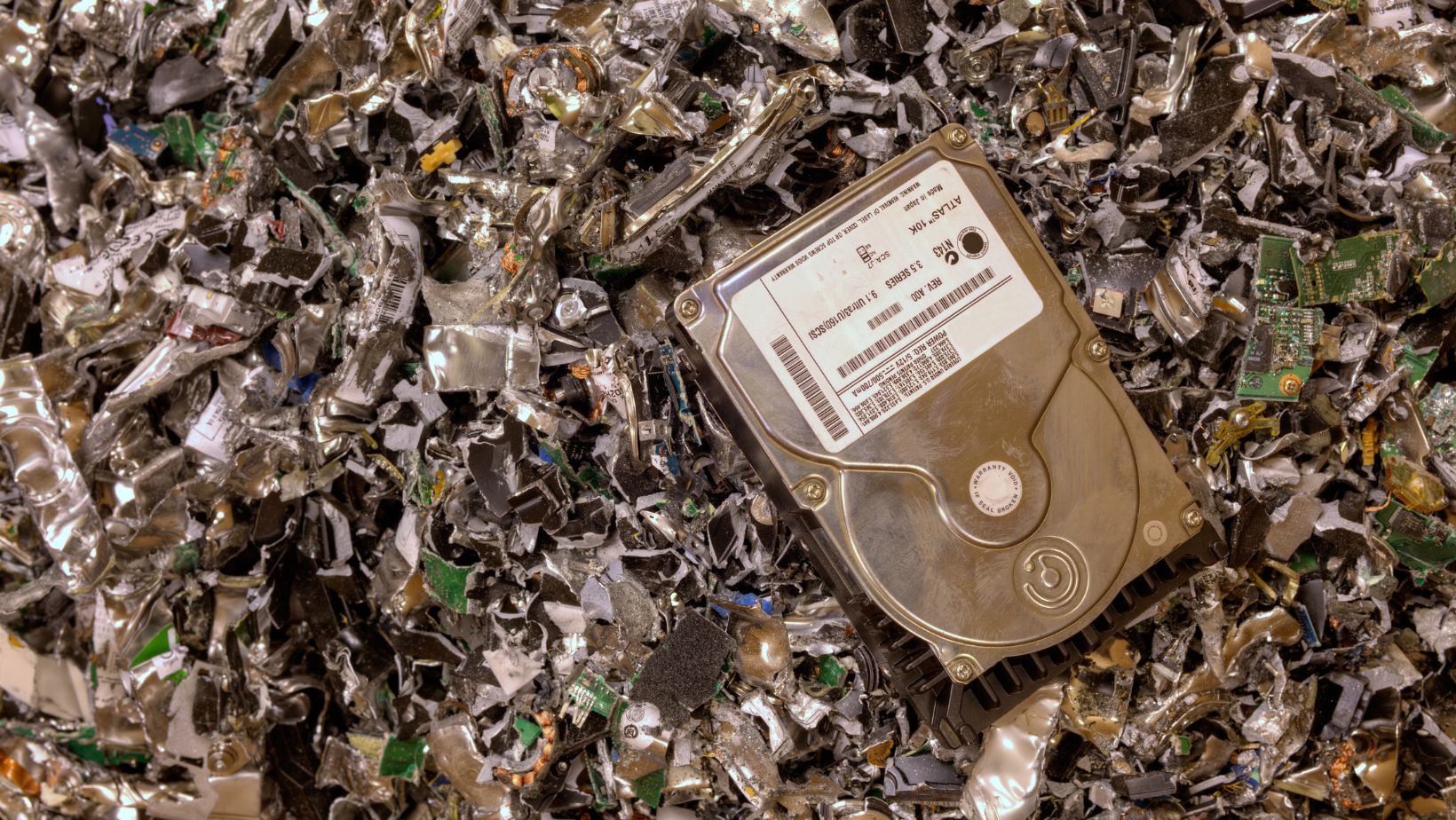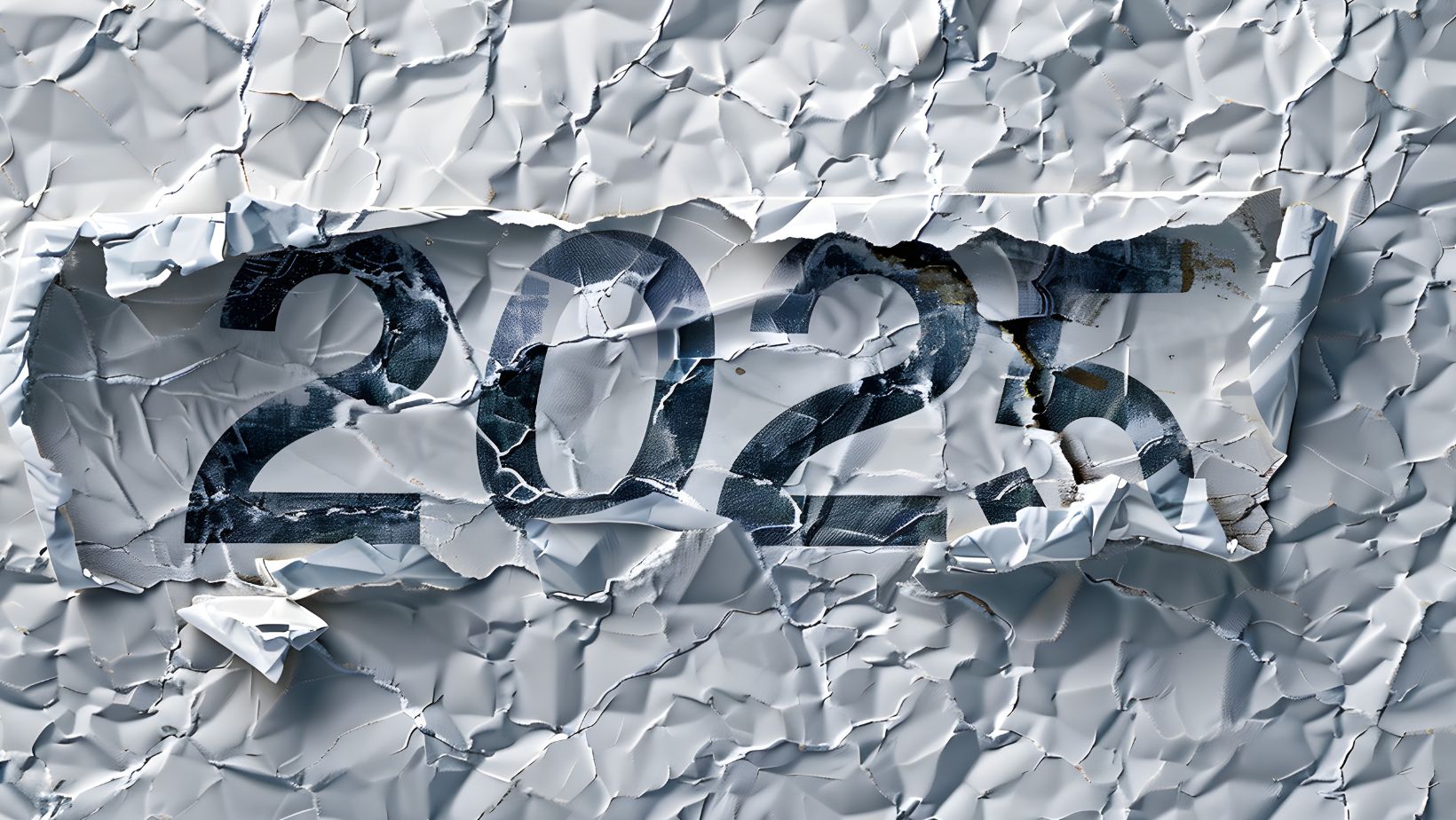Old hard drives might be out of sight, but they should never be out of mind. They often hold a treasure trove of sensitive personal and organizational data that, if not disposed of securely, can lead to costly data breaches or identity theft. Whether you’re upgrading your systems or decluttering your home office, simply tossing out or recycling old drives without proper data destruction isn’t an option.
When it comes to securely erasing your data, there are two common methods: HDD shredding and data wiping. While each has its merits, they cater to different needs, security levels, and risks. This blog is your guide to understanding these two processes. We’ll break them down, compare them, and discover why hard disk drive shredding stands as the more reliable solution for complete data disposal.
What Is Data Wiping?
Data wiping is a software-based process of overwriting the files on a hard drive so they become unreadable and irretrievable. Instead of physically destroying the drive, wiping uses algorithms to overwrite the existing data multiple times, ensuring that the original files are replaced with meaningless sequences of binary code.
Benefits of Data Wiping
- Drive Reusability: After wiping, the hard drive is left intact, making it useful for reuse, sale, or donation. This is ideal for businesses looking to reduce e-waste while upgrading their systems.
- Cost Effectiveness: Data wiping can be performed in-house using software tools that are often low-cost.
- Eco-Friendly: Since the drive isn’t physically destroyed, it can be refurbished and given a new life elsewhere.
Limitations of Data Wiping
- Recovery Risks: Advanced recovery tools can sometimes piece together remnants of wiped data, posing a potential risk for users with highly sensitive information. This is especially true if the wiping process wasn’t executed properly or using a robust algorithm.
- Time-Consuming: Wiping large batches of drives requires significant time, as each drive must undergo multiple overwriting passes to ensure complete erasure.
- Not Foolproof: Human error, software glitches, or skipped drives in the batch process can result in overlooked vulnerabilities.
Data wiping may work well for some situations, but it’s not a fail-safe method for dealing with highly classified or sensitive information.
What Is HDD Shredding?
HDD shredding takes things to the physical level, ensuring entire drives are dismantled into tiny, irrecoverable pieces. This process involves using specialized shredding equipment that crushes, grinds, or otherwise destroys the hard drives, leaving no trace of your data behind.
Benefits of Shredding
- Absolute Security: By physically destroying every piece, hard drive shredding eliminates even the faintest chance of data recovery. Sensitive files, contracts, financial data, or trade secrets are completely gone.
- Fast Processing: Industrial shredding can handle large batches of drives quickly, making it ideal for businesses with strict decommissioning schedules or significant amounts of data to handle.
- Compliance with Regulations: The process aligns with compliance standards such as HIPAA, GDPR, and other regulations, making it the trusted choice for organizations dealing with highly confidential records.
- Eco-Friendly: Certified shredding services recycle the shredded materials responsibly, ensuring minimal environmental impact.
Limitations of Shredding
- Non-Reusable Drives: The hard drives are rendered useless, meaning they can’t be repurposed or sold for reuse.
If your primary goal is maximum data security, hard disk drive shredding is unmatched in effectiveness.
Comparing HDD Shredding and Data Wiping
To better understand which method suits your needs, here’s a side-by-side comparison of hard disk drive shredding and data wiping:
Security
- Shredding: Completely destroys data, making recovery impossible.
- Data Wiping: Overwrites data, but could still be vulnerable to advanced recovery tools.
Time Efficiency
- Shredding: Extremely fast, ideal for handling multiple drives.
- Data Wiping: Time-consuming, especially for large batches.
Environmental Impact
- Shredding: Eco-friendly as shredded bits are recycled after the service.
- Data Wiping: Eco-friendly if the drive is reused after wiping.
Cost vs Risk
- Shredding: Higher cost but ensures absolute security.
- Data Wiping: Lower cost but riskier for sensitive data which could lead to a high cost.
While data wiping may be appropriate for general use cases or low-risk data, hard disk drive shredding is the go-to choice for businesses and individuals handling sensitive or classified information. Its true strength lies in its certainty, ensuring that no sliver of data remains accessible.
Protect Your Data Permanently
Disposing of old hard drives should never be an afterthought. Whether you’re clearing out old IT stock, decommissioning outdated equipment, or protecting customer data, how you choose to handle data destruction directly impacts your security.
Data wiping comes with limitations that could leave even wiped drives vulnerable to recovery. If peace of mind is what you need, hard disk drive shredding reigns supreme.
It takes the guesswork out of data disposal, ensuring absolute destruction and maximum security. From government agencies to healthcare providers to everyday users storing sensitive information, shredding delivers a permanent solution to data disposal.
For a worry-free shredding experience, contact Royal Document Destruction today. Our experts use state-of-the-art equipment to safely and efficiently shred your drives while adhering to strict environmental standards. No matter how sensitive your data, rest assured it’s gone for good.







